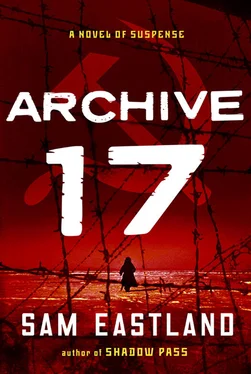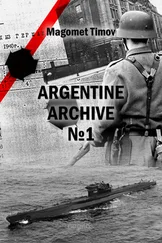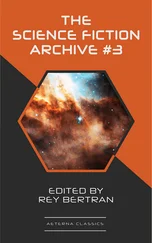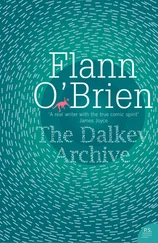Sam Eastland - Archive 17
Здесь есть возможность читать онлайн «Sam Eastland - Archive 17» весь текст электронной книги совершенно бесплатно (целиком полную версию без сокращений). В некоторых случаях можно слушать аудио, скачать через торрент в формате fb2 и присутствует краткое содержание. Жанр: Исторический детектив, на английском языке. Описание произведения, (предисловие) а так же отзывы посетителей доступны на портале библиотеки ЛибКат.
- Название:Archive 17
- Автор:
- Жанр:
- Год:неизвестен
- ISBN:нет данных
- Рейтинг книги:3 / 5. Голосов: 1
-
Избранное:Добавить в избранное
- Отзывы:
-
Ваша оценка:
- 60
- 1
- 2
- 3
- 4
- 5
Archive 17: краткое содержание, описание и аннотация
Предлагаем к чтению аннотацию, описание, краткое содержание или предисловие (зависит от того, что написал сам автор книги «Archive 17»). Если вы не нашли необходимую информацию о книге — напишите в комментариях, мы постараемся отыскать её.
Archive 17 — читать онлайн бесплатно полную книгу (весь текст) целиком
Ниже представлен текст книги, разбитый по страницам. Система сохранения места последней прочитанной страницы, позволяет с удобством читать онлайн бесплатно книгу «Archive 17», без необходимости каждый раз заново искать на чём Вы остановились. Поставьте закладку, и сможете в любой момент перейти на страницу, на которой закончили чтение.
Интервал:
Закладка:
“Don’t ask me why he does what he does,” replied Kirov, “because, believe me, I don’t know. Most of the time only Pekkala knows what he is doing, but that was enough for the Tsar, and it is enough for Stalin as well, so it will have to be enough for you and me, Comrade Deryabin.”
When the thirteen cases of gold, three hundred twelve bars in all, had been delivered to the train, Pekkala returned one last time to the frozen pond and dragged the body of Colonel Kolchak to the tracks, leaving a bloody trail through the snow. With Kirov’s help, the two men laid Kolchak inside the tender where the reserves of coal were kept.
The rest of the gold, more than five hundred bars, Pekkala left behind in the forest. In time, the Ostyaks would find it-a gift from the man with bloody hands.
“Inspector,” said Kirov, “we have a long journey ahead of us, but before we go, I have a little gift for you.” From the pocket of his tunic, Kirov removed the Emerald Eye and placed it in Pekkala’s hand.
For a moment Pekkala stared at the badge, which unblinkingly returned his gaze from the safety of his grubby palm. Then, very carefully, Pekkala pinned it to the lapel of his coat.
In the engineer’s compartment, Kirov sat down on the bars, which formed a low bench against the rear wall. He leaned back and folded his arms. “Deryabin!”
“Yes?”
“It is time to go.”
“But where?”
“Still think you could teach those Muscovites a thing or two?”
“Damned right I could!”
Seated on his makeshift throne of gold, Kirov gestured casually towards the west. “Then roll on, Engine Master. We are bound for Moscow. Show us what the Orlik can do.”
Too exhausted to go on, Gramotin stood beside the tracks, crying out in terror and confusion.
The Orlik had caught up with him at last.
Looking down from the engineer’s compartment, Pekkala noticed what appeared to be a person in military uniform, although he could not be quite sure. This wretch’s clothing appeared to be both singed and frozen at the same time. The helpless creature stood with its mouth open, caught up in a cyclone of whirling snow which vortexed around him as if it were a living thing. Whoever it was, Pekkala pitied him for having gone astray in such a wilderness.
As the train passed by, the two men locked eyes. In that moment, each one recognized the other.
“Gramotin!” exclaimed Pekkala.
The sergeant’s screaming ceased abruptly as he gaped at prisoner 4745-the man he could have sworn he had just killed.
And then the train was gone.
Gramotin waited until the Orlik had vanished into the distance. Then, after swearing a silent oath never to mention what he had just seen, he tottered back onto the tracks and kept walking.
Six days later, the Orlik rolled into Moscow’s Central Station.
HIGH ABOVE THE KREMLIN, thunderhead clouds drifted across the pale blue sky.
From his office window, Stalin gazed out across the rooftops of the city. He never placed himself directly in front of the glass. Instead, he leaned into the thick folds of the red velvet curtain, preferring to remain invisible to anyone who might be looking from below.
Pekkala stood in the center of the room, breathing in the honeyed smell of beeswax polish and the leathery reek of old tobacco smoke.
He had been there for several minutes, waiting for Stalin to acknowledge his presence.
Finally, Stalin turned away from the window. “I realize you must be upset. I might have overreacted.”
“You mean by ordering me to be shot?”
“However”-Stalin raised one finger in the air-“you must admit my instincts were right about the gold. Ingenious, Pekkala, allowing yourself to be taken hostage by the Comitati, in order to locate the treasure. A pity those two men managed to escape.”
“A small price to pay.”
“Yes,” Stalin muttered absentmindedly.
“You seem restless today, Comrade Stalin.”
“I am!” he agreed. “Ever since I walked in here this morning, I’ve had the feeling that the world was somehow out of balance. My mind is playing tricks on me.”
“Is there anything else, Comrade Stalin?”
“What? Oh, yes. Yes, there is.” Lifting a file from the stack laid out on his green blotter, he slid it across to Pekkala. “For the successful completion of this case, congratulations are in order. These are your award papers. You are now a Hero of the Soviet Union.”
“That will not be necessary, Comrade Stalin.”
Stalin’s jaw clenched, but then he sighed with resignation. “I knew you wouldn’t take it, and yet I have a feeling you do not intend to leave here empty-handed.”
“As a matter of fact,” said Pekkala, “I do have one request.”
“I thought as much,” growled Stalin.
“It concerns a man named Melekov.”
In the outer office, Poskrebyshev was relishing Stalin’s discomfort.
The previous night he had experienced an epiphany. When it came to him, he was hovering in that space between waking and sleeping, when the body seems to translate itself, molecule by molecule, into that swirling dust from which the universe is made.
The idea appeared in Poskrebyshev’s head so completely that it seemed to him at first as if there was someone else in the room explaining it to him. The drifting of his consciousness halted abruptly. Suddenly wide awake, Poskrebyshev sat up in bed and fumbled about in the dark for a pencil and piece of paper, afraid that if he did not write it down his plan might escape unremembered into the mysterious realm from which it had appeared.
Poskrebyshev had been thinking about the apparently limitless enjoyment Stalin took in humiliating him. He had always assumed that this was simply a thing he was required to endure. There could be no consideration of revenge. Stalin’s sense of humor did not extend to laughter gleaned at his own expense. The only way Poskrebyshev could ever achieve any kind of satisfaction was if Stalin did not know a joke was being played on him.
Which is impossible, he told himself.
It was at this moment that the angels spoke to Poskrebyshev, or if they were not angels, then some other supernatural voice-Lenin, or Trotsky perhaps, calling to him from beyond the grave-since it hardly seemed possible to him that he could have come up with such a brilliant plan all on his own. In its deviousness, it even surpassed the revenge he had taken on Comrades Schwartz and Ermakov, currently residing in Archangel.
Arriving early for work the next morning, Poskrebyshev carefully rearranged the contents of Stalin’s office. Chairs. Carpets. Ashtrays. Pictures on the wall.
As Poskrebyshev was well aware, Stalin liked everything to be in its proper place. He insisted upon it to such a degree of obsession that, the previous week, when a member of the Kremlin cleaning crew had switched his pipe rack from one side of the desk to the other, Stalin had the woman dismissed.
The brilliance of Poskrebyshev’s revenge consisted in shifting these objects only millimeters from their original position. No one looking at them would be consciously aware that anything was out of the ordinary. Subconsciously, however, the cumulative effect would be devastating.
It would not be permanent, of course. When Stalin had gone for the day, Poskrebyshev would put everything back in its proper place. He would do this not to relieve Comrade Stalin of his suffering but to confound him even further as to the source of his anxiety.
Now, as Poskrebyshev eavesdropped on Stalin’s conversation with Pekkala, he experienced a warmth of satisfaction he had never felt before and clenched his teeth to hide the sound of cackling which threatened to burst from his mouth.
A few minutes later, when Pekkala emerged from Stalin’s office, Poskrebyshev busied himself with paperwork. He expected Pekkala to walk straight past without acknowledging him, as most people did. Instead, the investigator paused. Reaching across Poskrebyshev’s desk, he repositioned the intercom a finger’s breadth to the right of where it had been before.
Читать дальшеИнтервал:
Закладка:
Похожие книги на «Archive 17»
Представляем Вашему вниманию похожие книги на «Archive 17» списком для выбора. Мы отобрали схожую по названию и смыслу литературу в надежде предоставить читателям больше вариантов отыскать новые, интересные, ещё непрочитанные произведения.
Обсуждение, отзывы о книге «Archive 17» и просто собственные мнения читателей. Оставьте ваши комментарии, напишите, что Вы думаете о произведении, его смысле или главных героях. Укажите что конкретно понравилось, а что нет, и почему Вы так считаете.











